Delhi Riots: Damning Observations In Court Orders Raise Questions Over Delhi Police Probe
Manu Sebastian
28 Nov 2020 6:48 PM IST
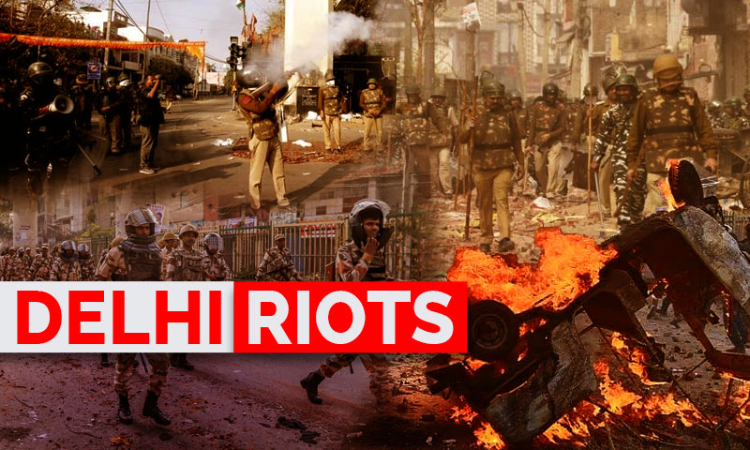
A survey of several bail orders in Delhi riots cases reveal a terribly casual and flawed approach followed by Delhi Police.
Selling a mobile SIM card without due verification of a customer is against the law. But is it a 'terrorist act' so as to attract the provisions of the draconian ant-terror law Unlawful Activities Prevention Act(UAPA)? Yes, thinks the Delhi police.
In December 2019, Faizan Khan, who works in a mobile phone shop in the national capital, issued and activated a SIM card without proper verification of the subscriber's identity. It turns out that someone else's' Aadhaar card and photograph was submitted by the subscriber to purchase the SIM card from Faizan Khan.
Later, this mobile number was allegedly used by the media team of Jamia Coordination Committee headed by Safoora Zargar to create Whatsapp groups to coordinate protests against the Citizenship Amendment Act.
Almost three months later, communal riots happened in North East Delhi during the last week of February 2020. The Delhi police formulated a conspiracy theory to link the students/activists leading CAA protests to the riots. And Faizan Khan, who sold a SIM card in December for Rs.200, was booked for 'terrorism' under UAPA, for the 'larger conspiracy' behind Delhi riots.
He was arrested on July 29. After nearly 3 months custody, the Delhi High Court granted him bail, despite the stringent conditions under Section 43D(5) of UAPA, after raising serious doubts about the police case which was based solely on the fact that he had sold a SIM card without due verification.
The HC said that the materials produced by the investigating agency did not disclose commission of offences under the UAPA. Earlier this week, the Supreme Court confirmed the bail, dismissing the special leave petition filed by the Delhi police against the High Court order.
The case of Faizan Khan is an example of the pattern followed by the Delhi police – which answers to the Union Ministry of Home Affairs – to incriminate random persons in Delhi riots cases after exaggerating remote links with the incidents.
Fortunately, the Courts have questioned this approach of Delhi police in many cases related to riots and have passed scathing orders against the investigation while granting bail to the accused.
A survey of several orders passed by Courts while granting bail to accused reveal a terribly casual and flawed approach followed by the police in many cases.
Police constables as eye-witnesses
A common feature of many riots cases was that the eyewitnesses mentioned in the chargesheet were police constables themselves, who could not inspire the confidence of the court even at the stage of bail hearing.
In the case Firoz Khan v State, the Delhi High Court refused to accept the statement of the police constable who claimed to have witnessed the act of burning down a shop during riots.
The High Court noted that informant gave a statement that though he had contacted the police control room when his shop was being attacked, there was no immediate response. The Court wondered why the informant contacted the PCR if the police constable(who claimed to be the eyewitness) was at the spot.
"Even on first blush, it is not understood as to why the complainant would say that he failed to reach the police by telephone, if Constable Vikas was already present there', the court observed.
The Court also noted that there was no material to show how the police could pick up only Firoz Khan and another person out of an alleged unlawful assembly of 250-300 persons.
While granting bail to one Irshad Ahmed, who was alleged to have assisted Tahir Hussain in attacking the houses of Hindus, the Delhi High Court made a damning observation that the eyewitnesses in the chargesheet "seemed to be planted". The so-called eyewitnesses were police constables themselves. The High Court noted that though the two police constables claimed that they were at the spot of the crime and identified the accused, they waited for three days to lodge the FIR.
"As per the statement of Constable Pawan and Constable Ankit (both are eye witnesses and were present at the spot), they had identified the petitioner and other co-accused. However, they have not made any complaint on the date of incident, i.e. 25.02.2020, whereas the FIR was lodged on 28.02.2020. Thus, the said witnesses seem to be planted one", the High Court observed.
In the case of Kasim as well, the High Court refused to take into account the statements of police witnesses.
The Court also noted that the two police constables, who claimed to have witnessed the involvement of petitioner Kasim, waited for 7 days to make a statement implicating him in the crime.
Kasim was also alleged to be an associate of Tahir Hussain. While granting bail to him, the High Court also noted that his presence was not there in the 11 video footages of the crime produced by the police in the chargesheet.
In the case of of Mohammend Rehan too, the police constables were the projected eye-witnesses. The High Court was reluctant to accept the eye-witnesses account after observing that they did not make any immediate entry in records about the accused. In this case, like in the case of Kasim, the police officers' incriminating statement against the accused came seven days after the incident. The High Court also noted that there was no CCTV footage, video clip or photo to corroborate prosecution's claim. Rehan had to remain under custody for nearly six months.

Only peaceful agitation; no evidence for instigation
The police had arrested student leader Devangana Kalita alleging that she had instigated a mob to resort to violence in a case related to Delhi riots. However, the High Court observed that there was no evidence of Kalita instigating violence and that materials produced by the investigating agency only showed that she was only participating in peaceful agitation against the CAA.
"I have gone through the inner case diary produced in a sealed cover along with pen drive and found that though her presence is seen in peaceful agitation, which is fundamental right guaranteed under Article 19 of the Constitution of India, however, failed to produce any material that she in her speech instigated women of particular community or gave hatred speech due to which precious life of a young man has been sacrificed and property damaged", observed the High Court while granting bail to Kalita in one of riots related cases registered against her.
The Court noted that there was no evidence of the agitation (against Citizenship Amendment Act- NRC), which had been going on for a long time since December 2019 within the presence of print and electronic media, leading to any acts of violence.
The Court also refused to accept at face value the disclosure statements of witnesses, observing that they were recorded much belated on 30.06.2020, 03.07.2020 and 08.07.2020 , whereas that witness is claimed to be present throughout, since December, 2019 when the agitation initially started against CAA.
The Delhi Police attempted to challenge the High Court order before the Supreme Court but met with no success.
"She is not going to run away", the Supreme Court remarked while dismissing the SLP of Delhi Police against the bail to Kalita.
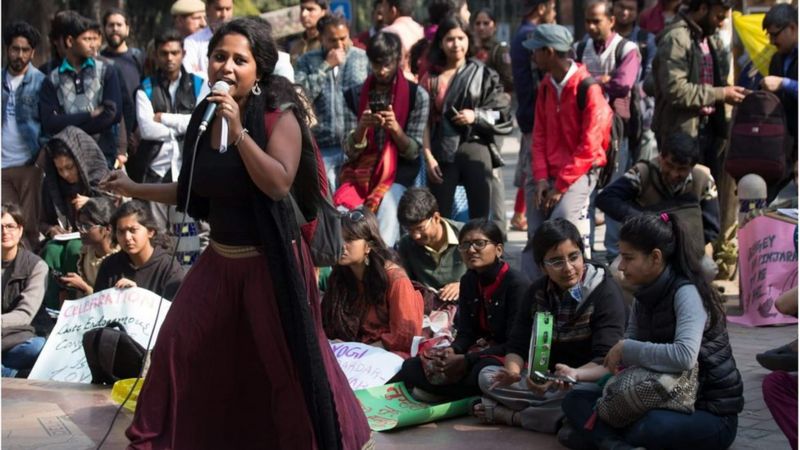
Riots victim made accused
In another curious case, a 65 year old man, Mithan Singh, who himself was a victim of Delhi riots, was chargesheeted by the Delhi police. The Delih High Court observed that there was no material in the chargesheet against him.
"petitioner is 65 years old and is a victim of the riots. His house was also damaged by an unlawful assembly, to which he has also lodged a complaint", the Court observed.
Investigation leaves a lot to be desired
Not just the High Court, the lower courts in Delhi have also been raising doubts about the Delhi police investigation in many riots cases.
In the order granting bail to anti-CAA activist and member of the group 'United Against Hate' Khalid Saifi, the Additional Sessions Court of Karkardooma lambasted the police case. The Court noted that the case showed "total non-application of mind by the police" which went to the extent of "vindictiveness".
"In my humble opinion, chargesheeting the applicant in this case on the basis of such an insignificant material is total non-application of mind by the police which goes to the extent of vindictiveness", observed Additional Sessions Judge Vinod Yadav of Karkardooma Court.
The observation was made while referring to the oral evidence relied on by the Delhi police to allege that Saifi was part of conspiracy behind Delhi riots. The witness had told the police that he had seen Saifi dropping Tahir Hussain(who is accused of murder of IB officer Ankit Sharma) outside a building on February 27 and thereafter had seen Saifi and Umar Khalid going into the building.
In this regard, the judge observed :
"The sole evidence of this so called conspiracy is a statement of PW Rahul Kasana, wherein he stated on 27.09.2020 that he was standing outside a building in the area of Shaheen Bagh, where he had dropped principal accused Tahir Hussain and thereafter he saw applicant and Umar Khalid going into the same building. I fail to understand from the aforesaid statement how a lofty claim of conspiracy can be inferred".
The court noted that if the principal accused, Tahir Hussain, was moved or actuated by Saifi in the meeting, then Saifi should have been made co-accused in ten other cases like Hussain, "which is not the case".
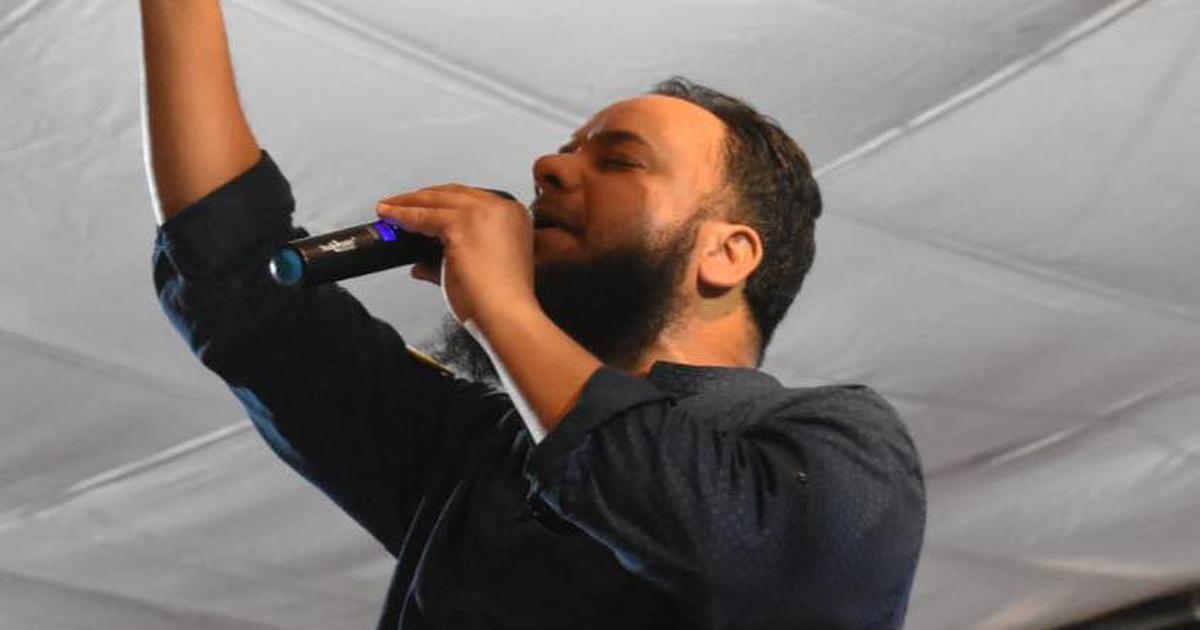
On November 17, the Additional Sessions Court of Karkardooma granted bail to one Ajay, who was accused of violence during Delhi riots, after observing "the investigation in the present case leaves a lot to be desired."
The same court granted bail to another accused, one Anwar Hussain, after noting that video footage produced by the police did not relate to the date of the alleged crime.
"it can be clearly stated that for whatever footage depicts of the incident of 23.02.2020, by no stretch of criminal liability, can be accounted for the offence of riot and murder committed on 24.02.2020. Thus, the video footage is not of the day of the incident of 24.02.2020 but of 23.02.2020", judge Amitabh Rawat observed in the order.
There is a "gaping hole" in the statement of an eye witness in the matter, observed the Karkardooma Sesssions Court while granting bail to one Gurmeet Singh in a riots case.
In another case, the Sessions Court wondered how could the police exactly identify three accused from a riotous mob of hundreds.
"From among the riotous mob consisting of several hundred persons, till date the investigating agency has been merely able to identify and charge sheet the aforesaid three applicants only", the Court noted while granting bail to accused Shah Alam, Rashid Saifi and Mohd.Shadab.
In this case too, the Court raised doubts about the credibility of the police officer, who claimed to be an eyewitness.
""Being a police official, what stopped Beat Constable Pawan from reporting the matter then and there in the PS or to bring the same in the knowledge of higher police officers. This casts serious doubt on the credibility of this witness", the judge observed.
Court restrains police from giving media statements about accused and witnesses
The Delhi High Court has restrained the police from giving statements to media about the accused or witnesses in the Delhi riots conspiracy cases till charges are framed.
In a petition filed by Devangana Kalita challenging the press note issued by the police against her, the High Court observed :
"Selective disclosure of information calculated to sway the public opinion to believe that an accused is guilty of the alleged offence; to use electronic or other media to run a campaign to besmirch the reputation or credibility of the person concerned; and to make questionable claims of solving cases and apprehending the guilty while the investigations are at a nascent stage, would clearly be impermissible".
The Court categorically observed :
"The police or any other agency cannot use media to influence public opinion to accept that the accused is guilty of an alleged offence while the matter is still being investigated. The same is not only likely to subvert the fairness of the investigation but would also have the propensity to destroy or weaken the presumption of innocence, which must be maintained in favour of the accused till he/she is found guilty after a fair trial".
However, the Court refrained from quashing the specific press note issued against Kalita after noting that it was taken from the chargesheet. While the court did agree that it was not necessary for the police to name the Petitioner in such a press note, the court went on to hold that issuance of such a press note did not violate Article 21 of the Constitution or any other law in force.
In another case, the Delhi High directed Zee News to disclose the source from where the alleged confessional statement of student leader Asif Iqbal Tanha, an accused in the riots conspiracy case, was obtained. Tanha's lawyer submitted before the Court that certain media outlets ran a smear campaign against him based on selective leaks from the police. The case is still pending and Zee News has sought for additional time to submit the affidavit disclosing the source.
Controversy over 'Hindu Resentment' order of police
Meanwhile, an instruction issued by the Special Commissioner of Police, dated July 8, which cited 'resentment among Hindu community' in the wake of arrests in Delhi riots cases, became controversial.
A petition was filed by one Sahil Parvez, an accused in a riots related case, challenging the order as indicating communal bias on the part of the police. The order had instructed police officials to exercise due diligence while carrying out arrests in riots cases as the arrests of some "Hindu youth" from riot hit areas led to "a degree of resentment among the Hindu community".
When the petition first came before the court, the bench orally remarked that the order was "mischievous" and asked what was the need to issue the same.
Later, after the reply of the Delhi police, the Court refused to interfere with the order observing that it was issued after the petitioner was chargesheeted and hence no "prejudice was caused" to the accused. The Court also recorded the statement of Delhi police also noted that charge sheets have been filed in many cases and that till date 535 Hindus and 513 Muslims have been charge-sheeted in all the cases.
The Court further observed that the media reports about the order were contrary to its spirit and cautioned the media to exercise restraint and verify facts.
Larger conspiracy case
The cases mentioned above are registered by different police stations of North East Delhi in relation to separate incidents of violence during riots. A special cell of the Delhi police is investigating the 'larger conspiracy' angle behind the riots (FIR 59/2020). Casting a wide net in this FIR, tracing back the alleged conspiracy behind the February riots to the anti-CAA protests which started in December, the police has arrested many student leaders and activists such as Safoora Zargar, Umar Khalid, Gulshima Fatima, Natasha Narwal, Devangana Kalita etc.
In these case, the Courts have prima facie accepted the police version to deny the student activists bail under UAPA charges. In one of such orders, the Sessions Court termed the plan to organize chakka-jam to protest against CAA-NRC as an "unlawful activity.. causing disaffection against India".
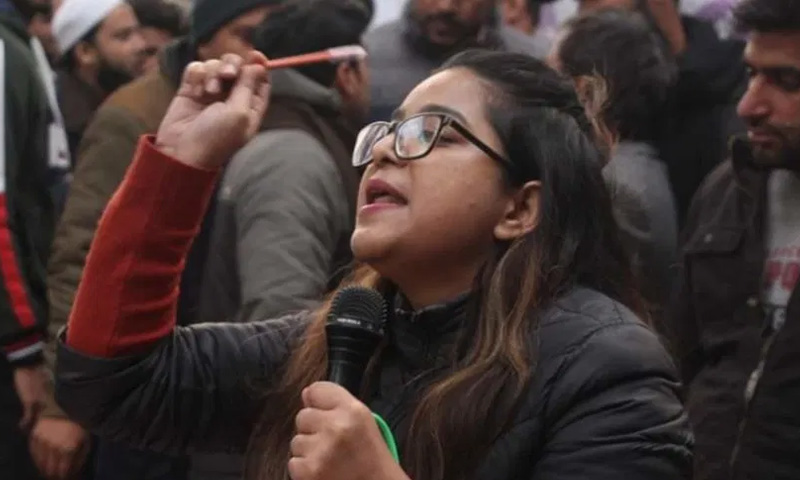
No bail for prominent riots accused
The Courts have refused to grant bail to prominent accused like NDMC councillor Tahir Hussain, who is an accused in the murder case of IB officer Ankit Sharma and Sharukh Pathan, who aimed a gun at the police during riots, after prima facie accepting the police case. The High Court also cancelled the bail granted to private school manager Faizal Farooq, after observing "Personal liberty of an individual though precious, is oflittle value if the larger interest of the people and nation are at stake"
No evidence for incitement by politicians, says police
It is also pertinent to note that the Delhi police has told the High Court that no evidence has surfaced so far to indicate any role played by BJP leaders Kapil Mishra, Anurag Thakur and Parvesh Verma in either instigating or participating in the Delhi Riots. This claim was made by the Delhi police in an affidavit filed in the Delhi High Court in response to petitions which sought criminal action against these politicians alleging that their provocative speeches led to riots.
On February 26, a bench headed by Justice Dr. S Muralidhar had played the videos containing the alleged inflammatory speeches of Kapil Mishra for the viewing of police officers.
The bench later directed Delhi police to take a decision within a day on the complaint made by social activist Harsh Mander seeking registration of FIRs against the leaders for alleged provocative speeches.
Next day, the Solicitor General told the Court that the Delhi police has decided to defer the decision on FIR as the riots situation was not "conducive" for registration of the same.
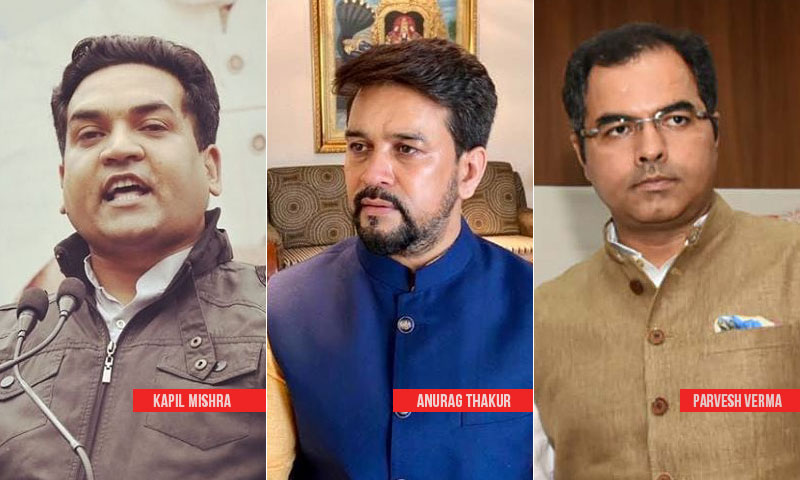
Court observations damning
The developments in the riot cases probe have to be seen in the light of criticisms that the probe in riots cases is one-sided and has taken a different track to terrorize political dissidents.
Nine retired IPS officers, including the decorated officer Julio Ribiero, have questioned the Delhi police investigation in these cases.
"Basing investigations on 'disclosures' without concrete evidence violates all principles of fair investigation. While implicating leaders and activists, who expressed their views against CAA, all those who instigated violence and are associated with the ruling party have been let off the hook.
Such investigation will only make people lose faith in democracy, justice, fairness and the Constitution", the ex-officers said in their letter to Delhi Police Commissioner.
The Delhi Police Commissioner responded by defending his force and dismissing the allegations as a "false narrative".
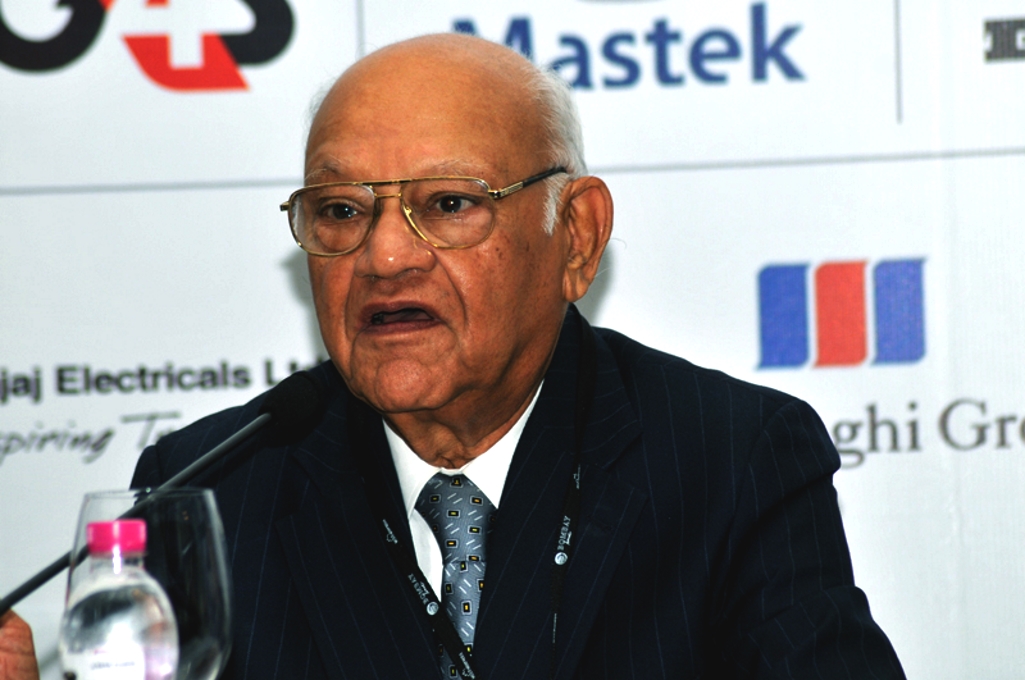
Be that as it may, the court orders discussed above speak for themselves. It is true that the observations made by a court in a bail order are tentative and preliminary in nature. Yet, some of the observations in the bail orders in the riots cases are highly damning against the Delhi police and they raise a serious question mark over the efficacy of the investigation
It is horrifying to note that the casual invocation of UAPA which happened in the case of Faizan Khan whose only crime was that he sold a SIM card without due verification three months before the riots. Persons with remote links with the incidents were roped in as accused on the basis of evidences which the courts later termed scripted. While it is a matter of consolation that many of such accused persons managed to get bail, it must not be forgotten that it came at the cost of their personal liberty.
(Courtesy to reports of court orders done by Sparsh Upadhyay, Karan Tripathi and Akshita Saxena).


